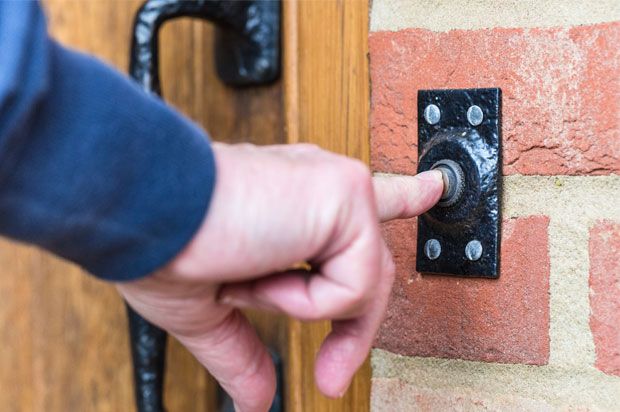Bailiffs
They're banging your door down, and you're panicking. Don't - know your rights when it comes to bailiffs.

They're coming...
The role of the bailiff
People run into debt for all sorts of reasons. So long as you’re open and honest with your creditors, and willing to repay your debts, you’ll find they will be reasonable with you in resolving the situation. The problems start if you fail to make every attempt to settle up. If things get really bad, a court can order the seizure of your possessions – amounting to the equivalent sum of your debt – and this is carried out by a bailiff.
“Are we talking about large men in suits called Vern?”
The rules about bailiffs are quite complicated, and what they can legally do often depends on what your debt is for. Unless it is for tax or court fine evasion, bailiffs will need a court order to take goods away. Bailiffs can be used if you owe money on the following:
- Council tax
- Court judgements (CCJs)
- Court fines
- Child support
- Rent
- Income tax
Parking fines
Once you are told that bailiffs have been called, you should get advice quickly. Bailiffs can charge for their visits, so the debt you owe will only go up the longer you ignore the problem.
“Can they break down my door with sledgehammers?”
Bailiffs can only force entry into a property if you’ve got unpaid criminal fines. They can also apply to the court for permission to force their way into a commercial property. In any other circumstances, the bailiff is breaking the law and you should call the police.
However, bailiffs can come in through an open door or window, or jump the fence to see if you’ve left a side door unlocked.
If you open your door to the bailiffs and don’t want to see them walk away with the TV, then you may have to sign a ‘walking possession agreement’. This sets in stone how you’ll pay back the debt and when, but if you fail to make the payment, then the bailiff would have the right to return and force entry.
“Not the stereo, please!”
Bailiffs are entitled to seize any goods to the value of your debt. That includes stuff that belongs to you, but also anything that is joint owned, even if the other person doesn’t owe a penny. What they can’t take are fixtures and fittings, things you’ve rented or things you need for work.
They are not allowed to remove items that you need to satisfy basic domestic needs, such as essential clothing, linen, furniture or household goods. But that doesn’t include DVD players or microwaves. In some cases, they can clamp or remove your car.
Goods seized will be sold at auction, and the money raised will be used to repay your debt. So bailiffs will be interested in the second-hand value of the goods, not what they cost when they were new.
“Can they come whenever they want?”
Most bailiffs will call during normal working hours and won’t knock on your door during the middle of the night. However, they are allowed to come round at any time unless they are collecting rent, which has to be between sunrise and sunset.
“There’s been a terrible mistake!”
You can appeal, should you feel a terrible miscarriage of justice is about to take place under your own roof. You need to contact the relevant court at the earliest opportunity and put forward your case to have the bailiffs put back on the leash. The court will sometimes take into account serious personal issues, such as bereavement, unemployment or clinical depression, but try not to leave things this late before you sort out the mess.
“How much will a visit cost me?”
Both kinds of bailiff are entitled to hit you with a charge for the court costs, which can amount to £50 a visit (depending on the type of debt), as well as a sum for their time, trouble and storage costs incurred.
Unlike Magistrates and County Court costs, the bailiff fees are not regulated. Instead, they are expected to be simply ‘reasonable’, in keeping with the outstanding amount you owe, and often payable within 28 days.
Non-payment could lead to a personal summons from the court, so if you think you’ve been badly treated, get in touch with the court or seek further advice.
Debt collection agencies
Some creditors use debt collection agencies to get the money that you owe them. These aren’t court officials and they don’t have the same powers as bailiffs. It’s illegal for them to force entry into your home or seize your possessions. If a collector threatens you physically, contact the police.
To find out more about debt collectors’ rights check out this guide.
Next Steps
- StepChange offers free advice on your debt problems, basing it round what's right for you. 0800 138 1111
- Chat about this subject on our Discussion Boards.
By
Updated on 29-Sep-2015
Photo of doorbell by Shutterstock
No featured article














